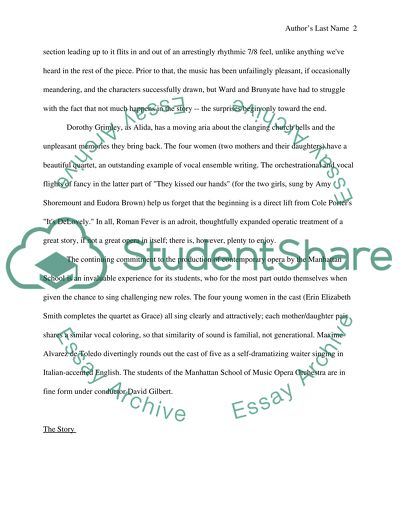Cite this document
(“Theme of love in Roman Fever Essay Example | Topics and Well Written Essays - 1500 words”, n.d.)
Retrieved from https://studentshare.org/visual-arts-film-studies/1512398-theme-of-love-in-roman-fever
Retrieved from https://studentshare.org/visual-arts-film-studies/1512398-theme-of-love-in-roman-fever
(Theme of Love in Roman Fever Essay Example | Topics and Well Written Essays - 1500 Words)
https://studentshare.org/visual-arts-film-studies/1512398-theme-of-love-in-roman-fever.
https://studentshare.org/visual-arts-film-studies/1512398-theme-of-love-in-roman-fever.
“Theme of Love in Roman Fever Essay Example | Topics and Well Written Essays - 1500 Words”, n.d. https://studentshare.org/visual-arts-film-studies/1512398-theme-of-love-in-roman-fever.


